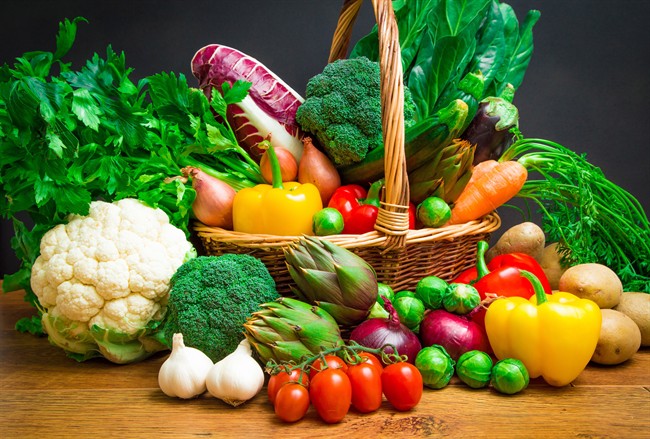If you buy vegetables or fruit with a “Made in Canada” label you would think they were made in Canada, right? Not necessarily. Food fraud is bigger than you might think.

This week, the Financial Post reported on a move that raised eyebrows across the industry when Mucci International Marketing – a supplier to such chains as Costco, Sobeys and Loblaws – recently had the book thrown at them.
READ MORE: It says ‘Product of Canada’ but is it? The growing problem of ferreting out counterfeit vegetables
Not only did they get a $1.5-million fine from the Canada Food Inspection Agency, they were also penalized $3.2 million by the Ontario Greenhouse Vegetable Growers and placed on probation for the next five years.
If you think this is an isolated case, it isn’t. My guest, Keith Warriner from the University of Guelph’s food safety program, said food fraud is a growing reality.
Faced with tight margins, demanding retailers and premium prices for home-grown and organic produce, some food packagers have taken to “topping up” their shipments with cheaper produce flown in from less costly jurisdictions like Mexico.

Get breaking National news
If you think “Made in Canada” produce is the only problem area, it isn’t. Warriner said as much as 70 per cent of organic produce also registers measurable levels of pesticides – in at least 10 per cent of cases, there should be zero pesticide residue if it is organic.
It may seem like a victimless crime, but the person paying a premium price at the till probably doesn’t think so. They are just getting ripped off. There are potential food safety issues to consider, as well.
If an outbreak of E. coli is found in bean sprouts or strawberries that have been mixed in with the “Made in Canada” batch, it becomes impossible to do a proper food recall. And if foods are being mixed with known allergens – for instance olive oil being mixed with peanut oil, or when seafood is mislabeled – it can be downright deadly.
READ MORE: Canadian Food Inspection Agency- food recall warnings and allergy alerts
What can be done about it? Listen to my full interview with professor Warriner below.






Comments
Want to discuss? Please read our Commenting Policy first.